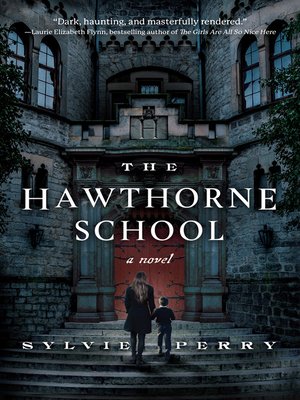
Sign up to save your library
With an OverDrive account, you can save your favorite libraries for at-a-glance information about availability. Find out more about OverDrive accounts.
Find this title in Libby, the library reading app by OverDrive.



Search for a digital library with this title
Title found at these libraries:
| Library Name | Distance |
|---|---|
| Loading... |
For fans of Riley Sager, The Hawthorne School is a twisty psychological suspense about the lengths one mother will go for her child, inspired by present-day obsession with cults and true crime.
Claudia Vera is overwhelmed. She's a single parent trying the best that she can, but her four-year-old son, Henry, is a handful—for her and for his preschool. When Claudia hears about a school with an atypical teaching style near her Chicagoland home, she has to visit. The Hawthorne School is beautiful and has everything she dreams of for Henry: time to play outside, music, and art. The head of the school, Zelma, will even let Claudia volunteer to cover the cost of tuition.
The school is good for Henry: his "behavioral problems" disappear, and he comes home subdued instead of rageful. But there's something a bit off about the school, its cold halls, and its enigmatic headmistress. When Henry brings home stories of ceremonies in the woods and odd rules, Claudia's instincts tell her that something isn't quite right, and she begins to realize she's caught in a web of manipulations and power.
The author's work as a psychotherapist, with a focus on narcissistic manipulation and addictive power dynamics, guides this exploration of a young mother wanting to do the best for her child.
Claudia Vera is overwhelmed. She's a single parent trying the best that she can, but her four-year-old son, Henry, is a handful—for her and for his preschool. When Claudia hears about a school with an atypical teaching style near her Chicagoland home, she has to visit. The Hawthorne School is beautiful and has everything she dreams of for Henry: time to play outside, music, and art. The head of the school, Zelma, will even let Claudia volunteer to cover the cost of tuition.
The school is good for Henry: his "behavioral problems" disappear, and he comes home subdued instead of rageful. But there's something a bit off about the school, its cold halls, and its enigmatic headmistress. When Henry brings home stories of ceremonies in the woods and odd rules, Claudia's instincts tell her that something isn't quite right, and she begins to realize she's caught in a web of manipulations and power.
The author's work as a psychotherapist, with a focus on narcissistic manipulation and addictive power dynamics, guides this exploration of a young mother wanting to do the best for her child.







